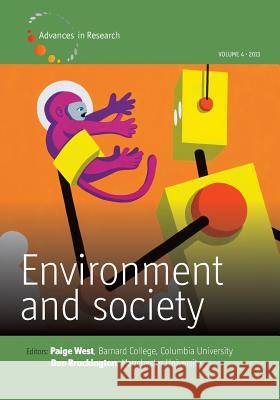Environment and Society - Volume 4: Human-Animal Relations » książka
Environment and Society - Volume 4: Human-Animal Relations
ISBN-13: 9780857452146 / Angielski / Miękka / 2013 / 206 str.
The concept of the animal has long offered the ultimate Other against which to define the boundaries of the human. However, this binary is just one of the many ways humans and animals shape one another's existences and experiences of the world. Today, human-animal scholars are tasked with describing a world in which humans do not automatically take precedence over other beings. Whether ethnographic, ecological, or philosophical, the topics addressed in this volume bring into focus a web of relations transversing species lines in conversations across the disciplines. Both constructively and critically, human-animal scholars have focused their attention on interspecies relations as they manifest in various forms of ecological companionship and conflict. These studies of a social world composed of diverse relationships among humans and animals push beyond stubborn dichotomies, but also remind us that lessons from the past are crucial to an ethical path forward. To represent entangled ways of being in intelligible and conscientious ways, the authors in this volume write toward messy multiplicities in order to identify the worldly potentialities of a posthuman philosophy.
The concept of the animal has long offered the ultimate Other against which to define the boundaries of the human. However, this binary is just one of the many ways humans and animals shape one anothers existences and experiences of the world. Today, human-animal scholars are tasked with describing a world in which humans do not automatically take precedence over other beings. Whether ethnographic, ecological, or philosophical, the topics addressed in this volume bring into focus a web of relations transversing species lines in conversations across the disciplines. Both constructively and critically, human-animal scholars have focused their attention on interspecies relations as they manifest in various forms of ecological companionship and conflict. These studies of a social world composed of diverse relationships among humans and animals push beyond stubborn dichotomies, but also remind us that lessons from the past are crucial to an ethical path forward. To represent entangled ways of being in intelligible and conscientious ways, the authors in this volume write toward messy multiplicities in order to identify the worldly potentialities of a posthuman philosophy.











